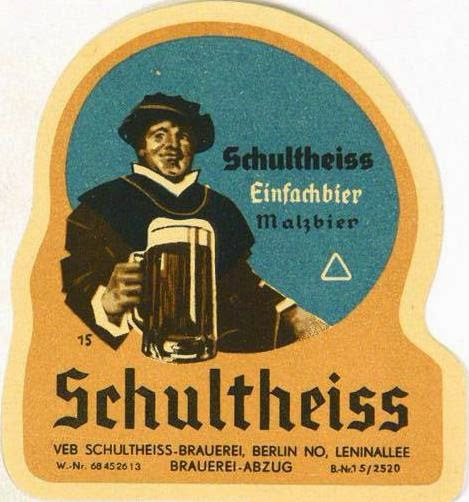The quotes below come from a report on the German brewing industry produced by the British Intelligence Objectives Sub-Committee in 1946 which was reproduced in a recent issue of Brewery History. A group of British brewers went and had a nose around various German breweries and maltsters.
Schultheiss-Patzenhofer Brauerei, Berlin.
"Export beers were pasteurised and had for all practical purposes an indefinite life in bottle. In an effort to eliminate, ad far as possible, non-biological haze, the grst for export beers contained up to 20% of rice, of, alternatively, 20% of rice and 5% of maize."
Brewery History, Number 156, 2013, page 68.
Bavaria und St. Pauli Brauerei, Hamburg
"Export beers were brewed by the three mash system with an open boil for 2.5 hours. When available, 5 to 7% of rice was added to the grist for export beers. At a later stage export beers were also primed."
Brewery History, Number 156, 2013, page 73.
Bill Brauerei, Hamburg
"For their export beers they used anything up to 20% of rice in the grist, and used, as far as possible, a low nitrogen barley of Moravian origin for the malt. The malt and rice were mashed separately, the rice being added to the mash after the albumin rest - i.e. the first stage."
Brewery History, Number 156, 2013, page 76.
I knew German brewers didn't have to stick to the Reinheitsgebot for export beers - other than in Bavaria - but I didn't realise rice was so popular. It looks like the practice was pretty common in Northern Germany.
Even though the report was written in 1946, it must be referring to pre-war practice as no beer was being exported just after the war. In fact not much was being brewed at all, other than for the occupying forces. What beer was brewed for the civilian population was just 2º Plato.











































































2 comments:
Very interesting Ron. What is the situation today, say for Beck's or Holsten and other big export brands? (Or does anyone know?). I always assumed these were all-malt. By non-biological, I think they mean in effect chill haze.
Gary
Gary,
I don't know, but it wouldn't surprise me if they weren't all malt.
Post a Comment